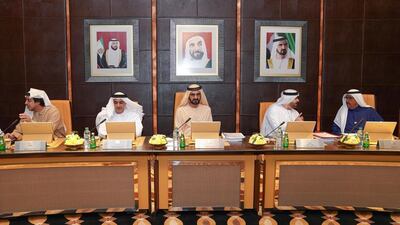The public response to the introduction of VAT in the UAE has been mixed, as you would expect. Some felt that it was a necessary step in the move away from oil-dependent revenue generation. Some, however, plainly felt that their wallets would be hit by the introduction of the consumption tax. Such a wide range of reactions was understandable given that VAT – a tax levied on goods and services and collected by businesses on behalf of the government – can seem perplexing in an economy where consumers are unused to a prevalent tax regime.
There is some scope for abuse and the tax authority has pledged to take on profiteers. It emerged last month that a handful of businesses were found to be hiking prices by claiming to apply VAT on their products even before it was introduced. Since VAT's introduction, the issue of rounding up of prices for goods has also been on the public's lips. But more than a week after its formal implementation across the UAE, what is striking is the frictionless manner in which the country at large has adopted and is adjusting to it. At the same, there is residual wariness, as there always is in matters of taxation.
______________
Read more
Sheikh Mohammed: 70% of VAT revenue to be used in local projects
Saudi Arabia increases salaries and allowances to offset VAT impact
Welcome or loathe VAT? It's all about fiscal psychology
______________
But even the sceptics have reason to embrace VAT after Sunday's meeting of the UAE Cabinet in Abu Dhabi. Sheikh Mohammed bin Rashid, the Vice President and Ruler of Dubai, who chaired the meeting, announced that 70 per cent of all the revenues collected from VAT will be channelled back into local government projects. The provision of "better local services, greater community development and wider support for our citizens", Sheikh Mohammed emphasised, will be the chief objectives for which a majority of VAT revenues will be used. The projects that receive funding from VAT income will be governed by transparency and citizens will be consulted as the government strives to create the conditions in which they may "achieve a decent living for them and their families."
This is a smart move on the government's part. It has not only earmarked the future revenues obtained through VAT for projects designed to enhance the lives of ordinary citizens – it has also, in one stroke, assuaged any lingering doubts about VAT. Next door, Saudi Arabia has achieved the same result by accompanying the implementation of VAT with a rise in subsidies to citizens. In the UAE, the government has opted for increased public spending and for making sure that the money that comes into the public purse is used for projects that benefit the country and its people. Both models, though different, are undergirded by the same motive. VAT is the beginning of this country's – and this region's – transformation into a prosperous post-oil economy.
Follow The National's Opinion section on Twitter

